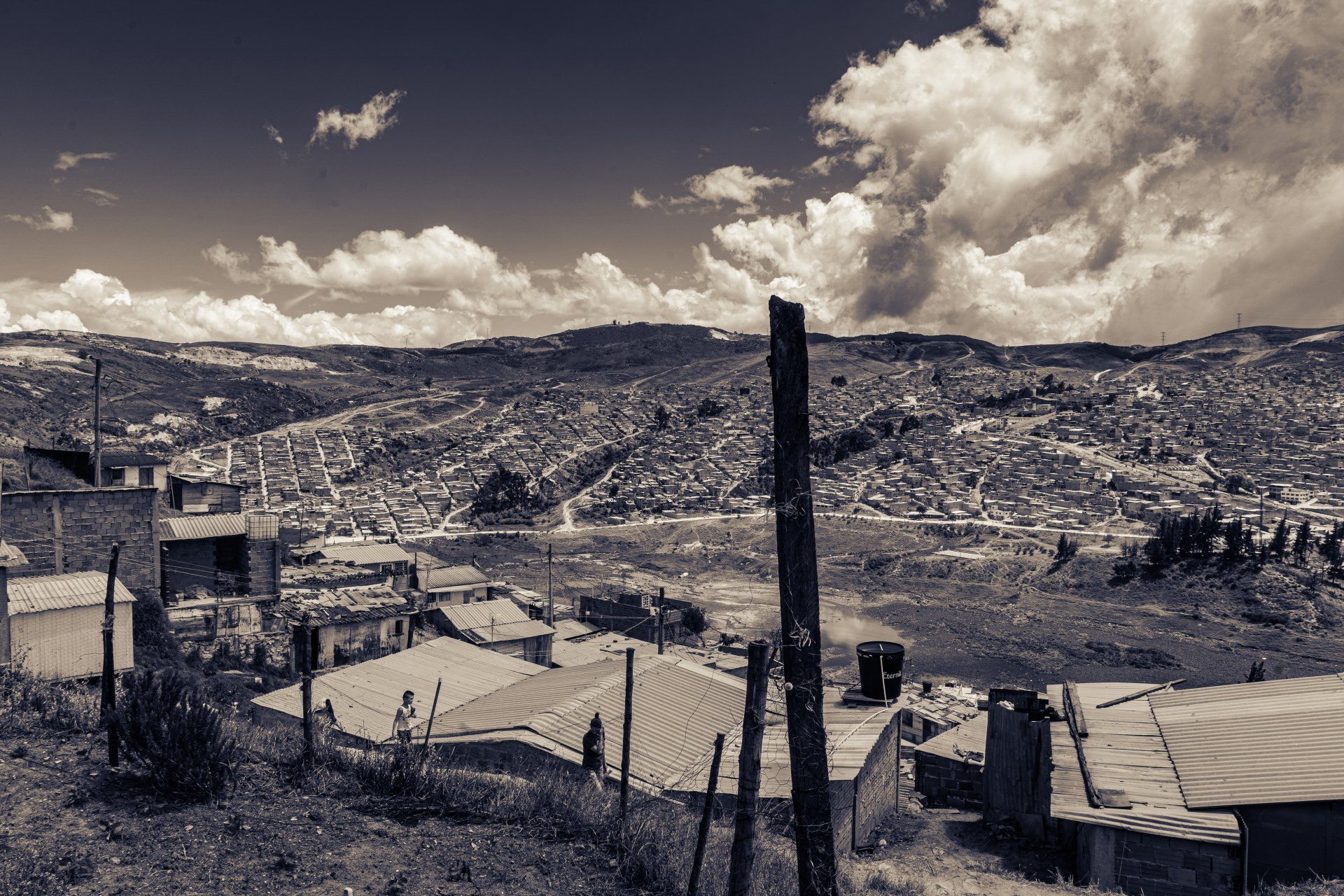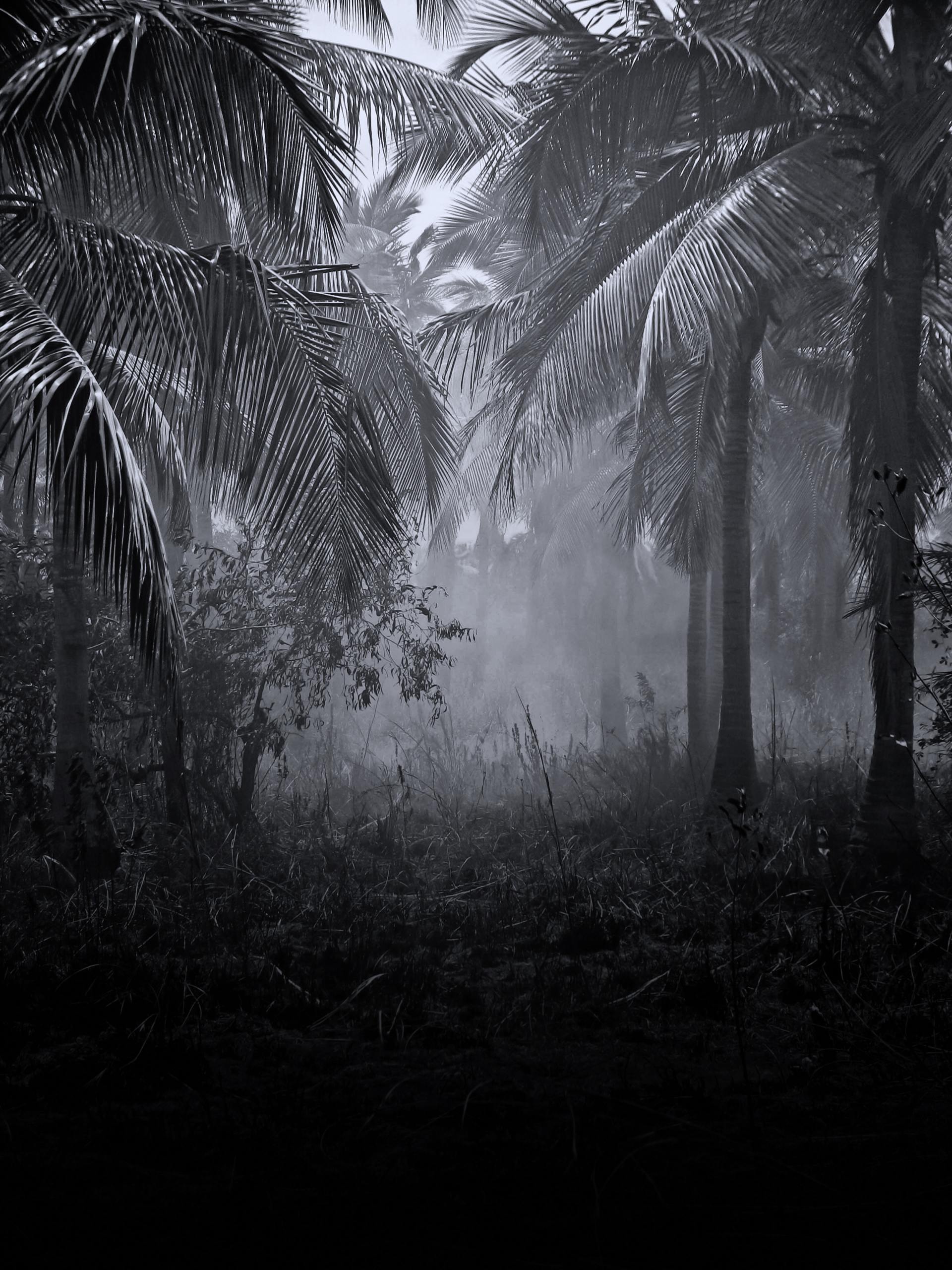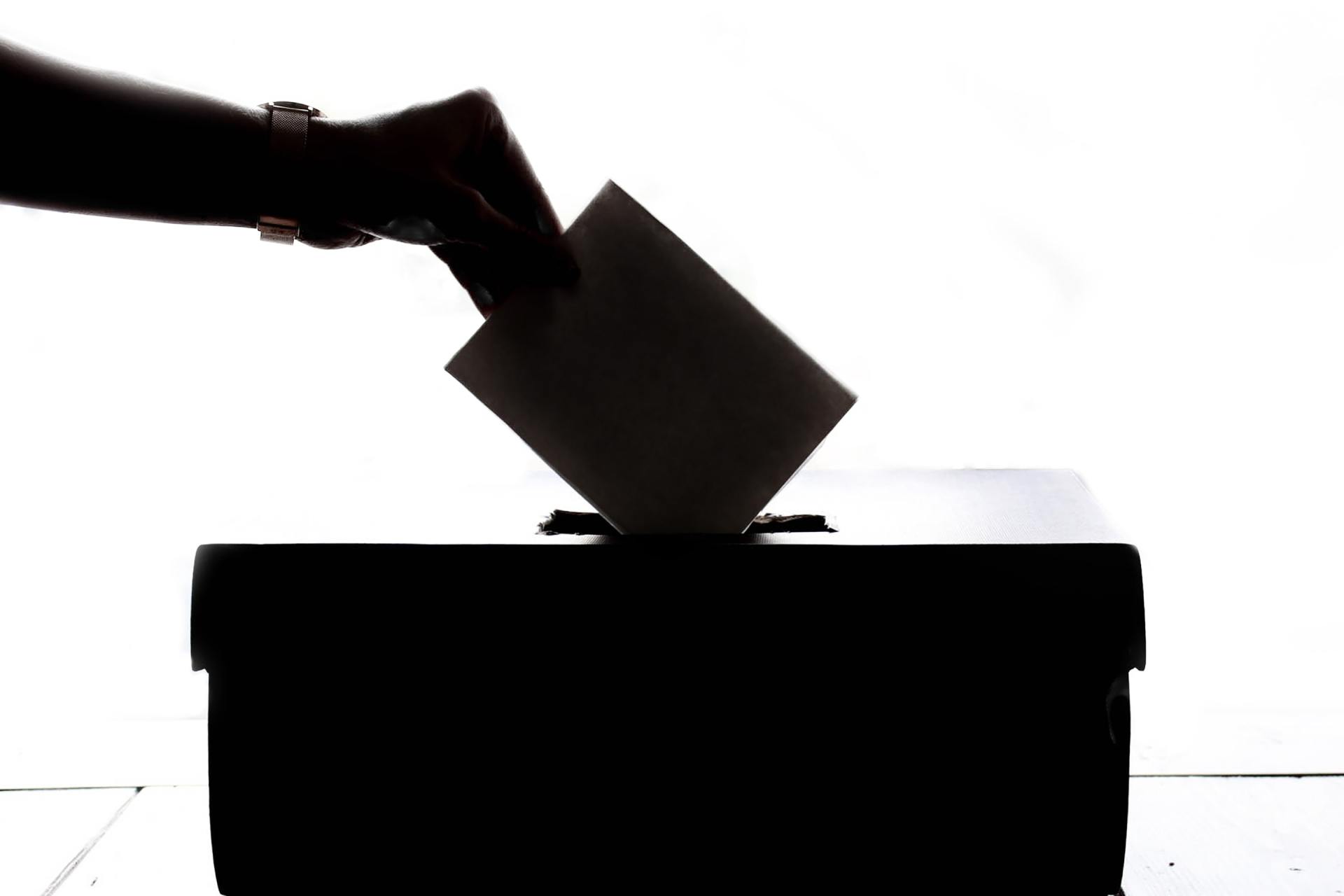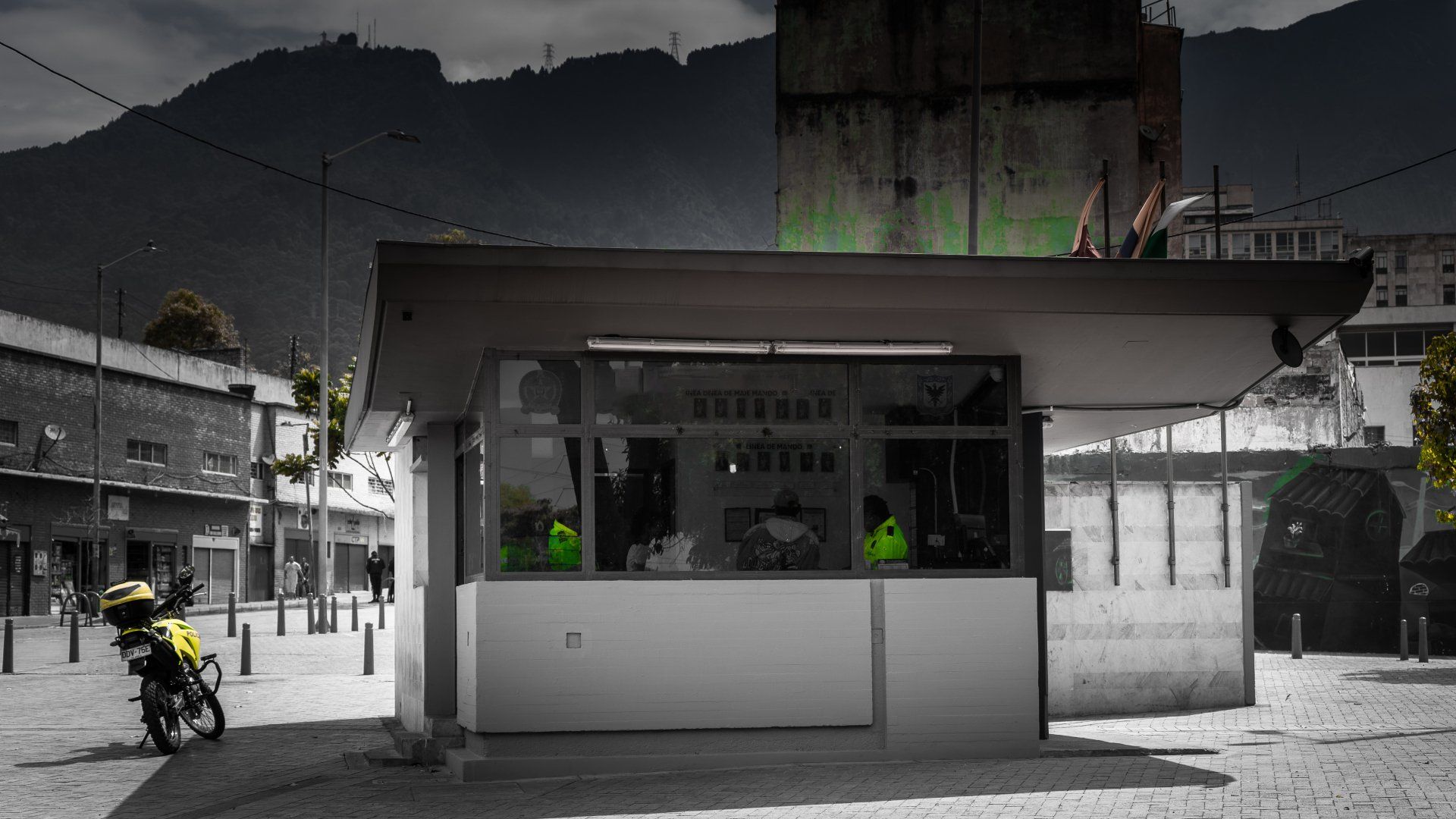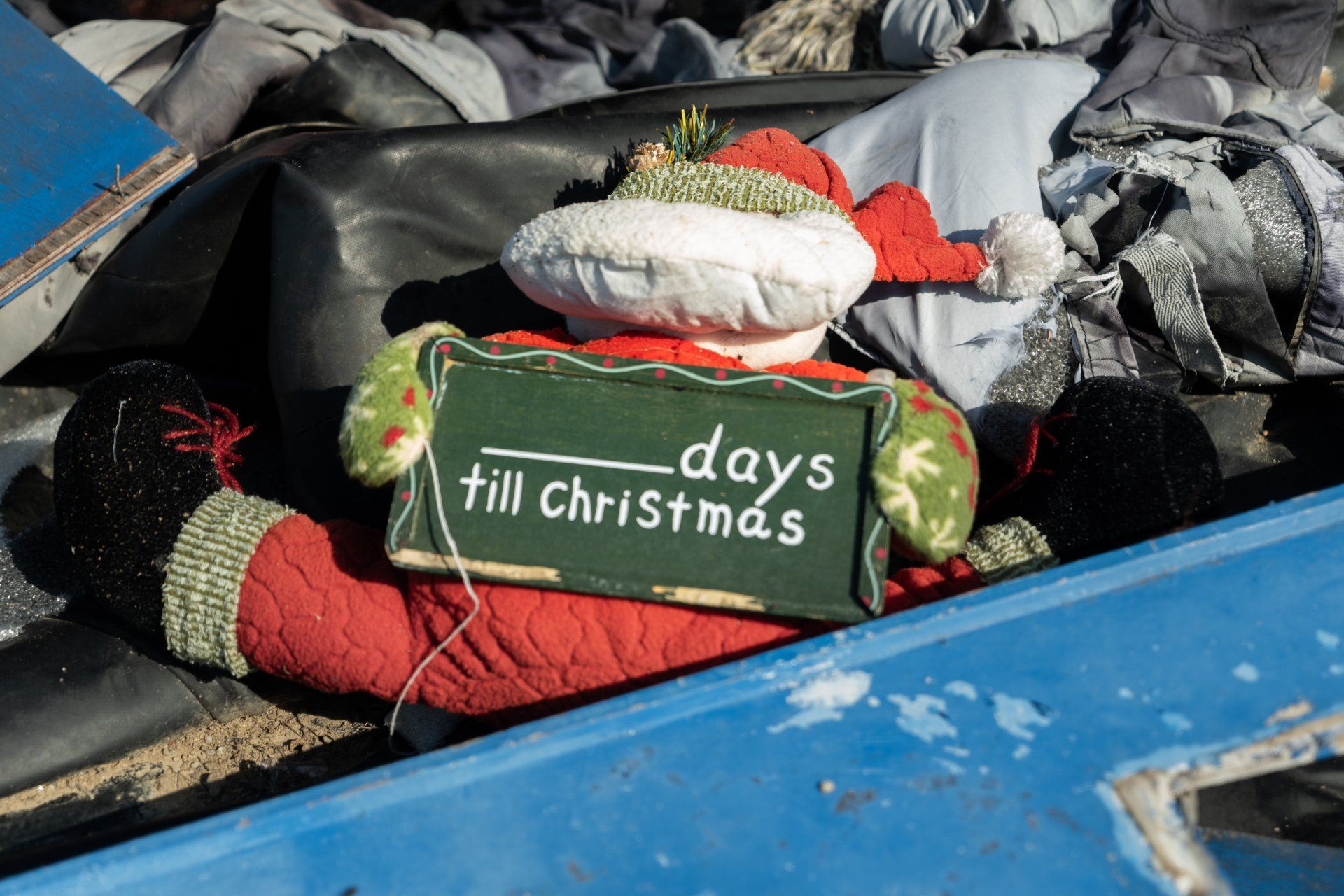Stories of war, poverty, injustice, compassion, love and hope. Stories that don't need a name or place cause they happen everywhere. A blog that tells the experiences of Catalina and Casper in places like the townships in Capetown, refugee camps in Greece and slums in Colombia. However, we feel like those places don't need to be named, because we believe that suffering shouldn't happen anywhere and to anyone, and human resilience is something inherent to human beings anywhere in the world.
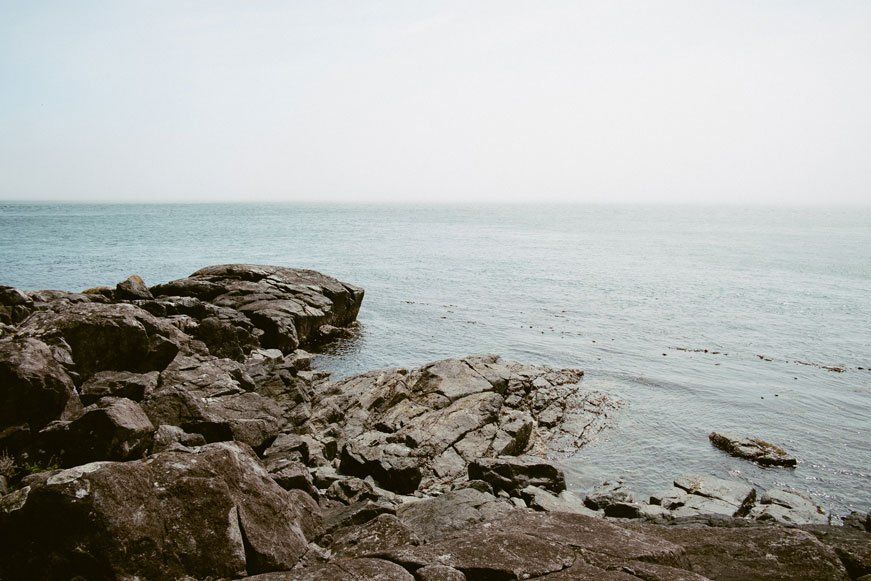
Abuse has so many faces, it is sometimes hard to recognize. But in the end the form doesn't matter, because all kinds abuse take a piece of our soul and it takes years to rebuild. In years of working with vulnerable communities, I have heard of abuse and its many faces. Psychological abuse that destroys the soul with words, physical abuse that breaks the sense security, sexual abuse that takes by force another person’s body, and many others. However, many times they are not even called abuse but get lost in meaningless classifications. This last part is one of the issues that have caught my attention at the tables where we have sat to talk about abuse. At these tables I have noticed many times that we talk about sexual abuse only when there is penetration. Our language then minimizes the harm of other forms of inappropriate touching, when in reality, any physical contact on my body without my consent that makes me feel uncomfortable is abuse. I find it more than necessary that anything that is abuse be labeled as such, because the failure to do so causes victims not to feel entitled to report the abuse, or even go through the emotional grief that arises from it. In these safe places of sharing and listening I have heard the hardest and most painful stories of my life (the impact of these on the mental health of the social worker I will discuss in another blog). These stories explain why these women and men fall into addictions to psychoactive substances, isolate themselves from the world, and live life in darkness. It is their pain, fear, anger and shame that drove them to make decisions that led them to live on the streets. Although at the moment they sit at this table because they want a different life, it is impossible not to see in their eyes the pain and the need to escape reality. "That is why, when we talk about the problem of drugs and insecurity, the only solution lies at the root. These kids are not the problem, they are victims of a system" Their painful stories, of which they are victims, helped me to understand the path of each one of them. It is the one who hurt them, the one who stole so many years of their lives: the victimizer and the cause. And the victims in this table, are the ones who stand up today, the ones who fight with strength for a different life. The addiction is the cause of the need to escape, of not being able to inhabit their body in a safe way, of the only permanent space that has become their own prison. That is why, when we talk about the problem of drugs and insecurity, the only solution lies at the root. These kids are not the problem, they are victims of a system. Abused girls who end up using drugs because the only time they don't feel the traces of the abuser in their body is when the drugs have disconnected them from the physical world. When your system fails you so deeply that while you are starving others are feasting. You find that the only way to silence the pain of not having anything to eat, is to consume something that makes you forget the hunger. I know it sounds like I am excusing all their decisions, but if you could know their stories, you would stop pointing at them and start pointing at the big culprit, one who doesn't know about hunger, one who doesn’t knows about the street, one who wears a suit.
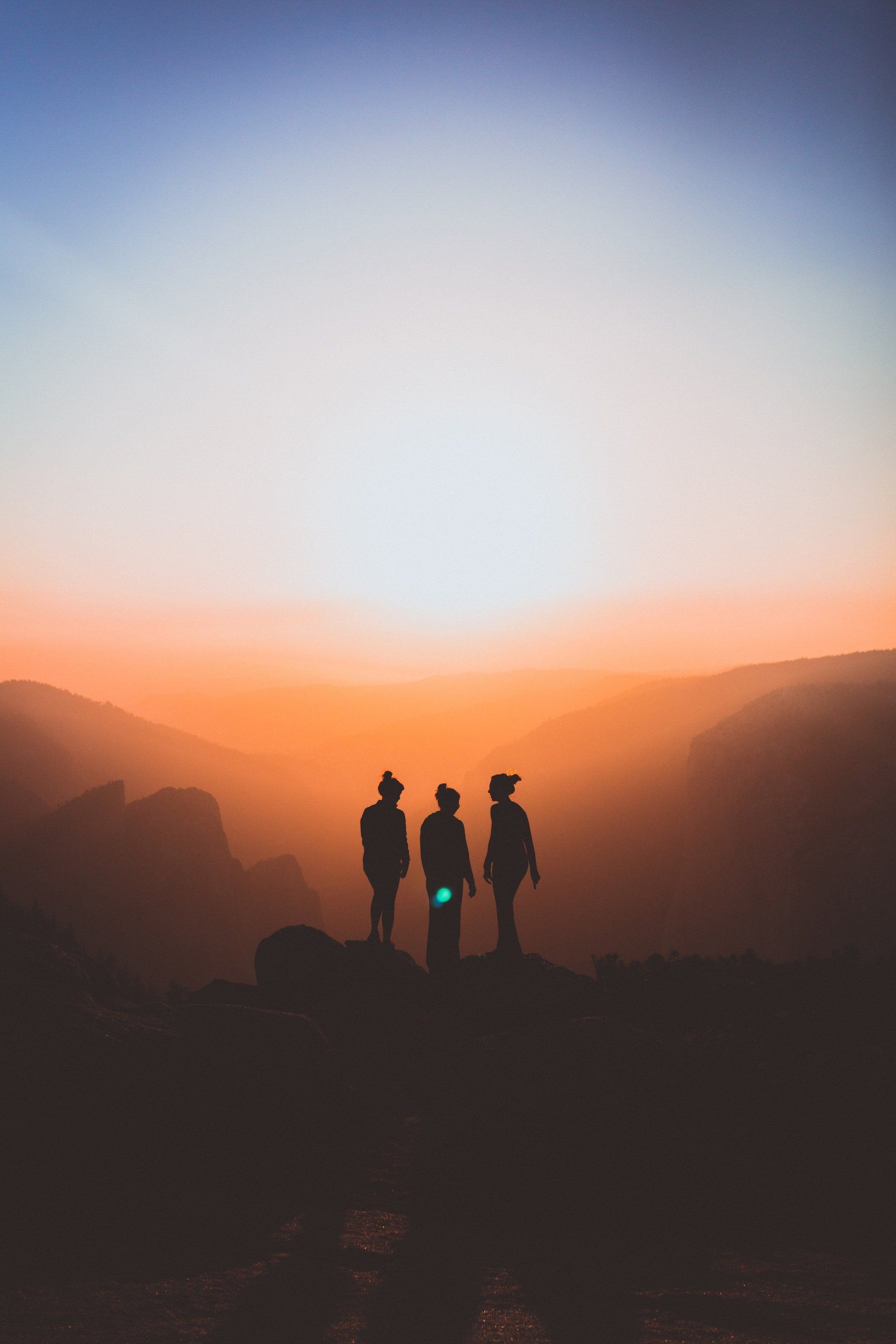
So there I was. Ready to help. On our first day we were introduced to the NGO by its volunteer coordinators. They explained us about the work they were doing. How they were improving the situation and how we as volunteers could help. But they did have a rule: don’t drink a beer with the refugees. “We don’t want you to develop a too personal connection with them”, they said. “People will get hurt”, was the reason. "the rule that was supposed to avoid harm was causing serious harm" It sounded a little bit strange to me, but we were new, so we went on to work as we were told. Providing clothing, cleaning up trash and fixing some tents. As humanitarian workers, there’s this one rule shared across the whole world: “do no harm”. We come to help in very hard circumstances, so the last thing we should do is to make the situation worse. This is a very good rule. But it is also the rule that gave birth to that other rule: don’t socialize with the refugees. And while I was picking up trash in the middle of the camp, one refugee came up to me and told me a story that immediately made me realize the harm that rule really did. Yes, that’s right, the rule that was supposed to avoid harm was causing serious harm. First of all, he told me how much he appreciated the help from the volunteers. While the governments were letting him down viciously, he was grateful for the help of all those that did come to help. But it wasn’t so much the work they were doing that was important to him. While food, shelter, and sanity were very necessary, the volunteers were most important to him, because in the midst of all the atrocities, it reminded him that they were still people in the world that cared. He just wanted to feel normal: “The thing I want the most, was someone the talk to”, he said. “And the kids just need love, more than professional help”. “Because the only thing you can really do for a refugee, is to make him brave”. Brave enough to survive all the horrors that come with a life on the run. Horrors that inevitably cause PTSD. And one of the worst symptoms of PTSD is the loss of the ability to see light, positively. And that was it, in the midst of all the inhumanity, they just needed to be reminded they were still humans. That there was still light in the world. They need a warm hearth. The need a listening ear. They need love. And that is why that’s why that rule is so harmful. Because by telling your volunteers not to socialize with the refugees, you are telling them not to treat them as equal human beings. With that rule you are contributing to the dehumanization of refugees. "the worst symptom of PTSD is the loss of the ability to see light" And I realized this is not just a problem of that NGO. While the humanitarian world is very important and should receive more support in this world, many of them fall into the trap of treating the people they aim to help as victims. We are the helpers and they are the victims. But this creates a gap, a distance, between the helper and the receiver. And it is exactly that gap that was the problem in the first place. The gap between rich and poor, documented and undocumented, healthy and traumatized. The first step to close that gap is to treat each other as equals. Go have a beer. Don’t let your social, economic or cultural differences hold you back. Let grab a cold one and forget about our differences for just a little while.
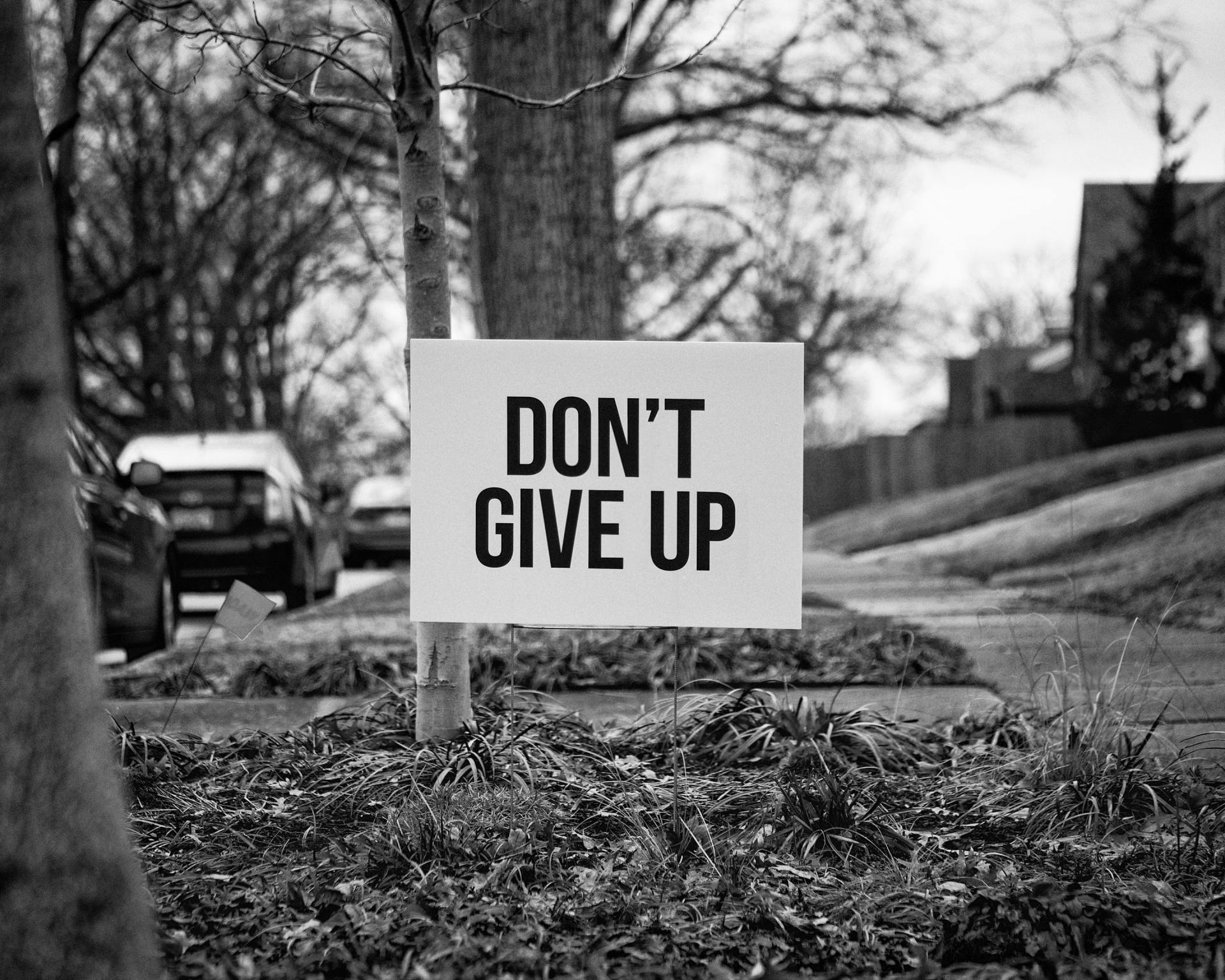
When I first met her, I greeted her with a judgmental look that made me think “this crazy woman, what a mess, I refuse to live with her”. Today, as I say goodbye, I refuse to never see her again. She reached out to me even though all I had done was to judge her in silence. Because of of violence in her country, the abuse of her sisters and the loss of her father, she had to leave her place of birth. Just like millions of immigrants every year, she was looking for peace. She arrived in a country that promised opportunities and development. She wanted to be a journalist so she could tell the stories that no one was telling. Despite her hard work and the expectation to have more safety in the country that received her, she had to quit her job as a journalist. She received serious treats on her life, because her stories put light on atrocities that some very powerful people wanted to keep silent. "Her tragic story has never destroyed her altruistic soul" After this, she decided to undertake a long journey, crossing different borders, looking for new opportunities. Unfortunately, she found nothing more than the judgmental look of all of those who do not understand people that look different than themselves. She is judged for being black, African, an immigrant. In her own country, she is judged for leaving. And she judges herself for not being with her mother during her last days alive. Regret marks each of the scars she accumulated over the years. She always wonders if her story would have been different if she had been satisfied with the little her country had to offer, if she could have just turned a deaf ear to the injustice and war. Although it is hard for her to accept, we know that her story would have been even more tragic if she had not emigrated, because war, violence and poverty would have defined her life. Besides, in my selfishness I must say that her choice to migrate allowed us to meet and for that I will be eternally grateful. Her tragic story has never destroyed her altruistic soul. She is the proof that we are ANYTHING but victims of our circumstance. "Thank you for caring" Thank you for your breakfasts that, even though you didn't have much to share, you shared with me so I wouldn't miss home. Thank you for defending me. Thank you for caring. And most of all, THANK YOU for teaching me to look beyond my own ignorance.
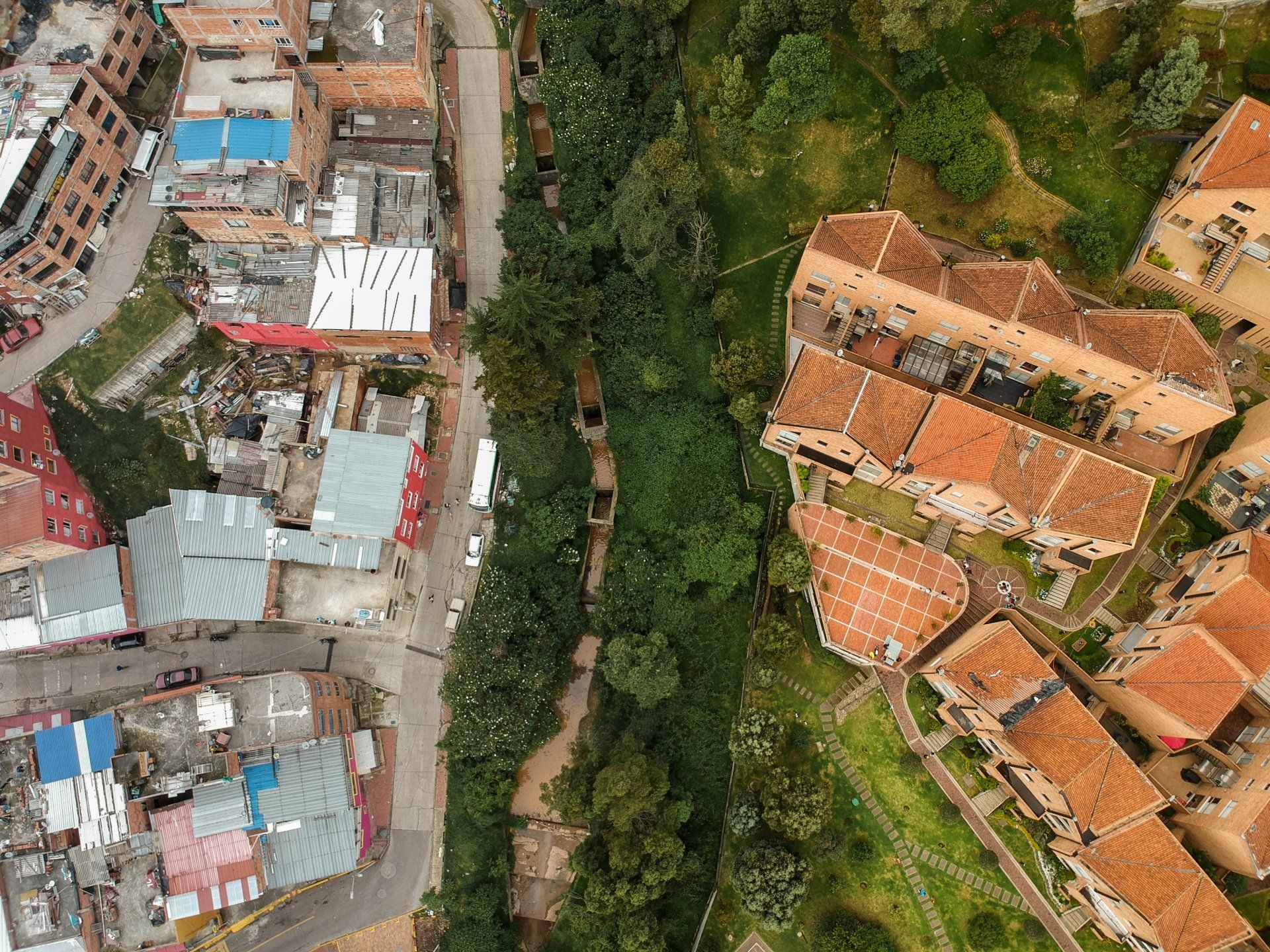
The first time I witnessed poverty was when I was 17 years old (a first sign of my privilege). But while the images of poverty were poignant (almost 10 years later I still haven’t gotten used to it), there were two things that impressed most. It was the first time I encountered something that I would see over and over again all around the world in the years to come. It was the people. From the point of view of my own spoiled comfortable life, I’d imagine myself to be depressed, hopeless and despaired if I’d have to live in such circumstances. But these people showed the exact opposite. We visited a school where a teenage girl with the most powerful voice welcomed us warmly with a beautiful speech. It was full of strength, ambition and vigor, and it taught the lesson to not ever judge someone based on the conditions they live in. I don’t know what happened to her, nor do I remember her name, but I can only imagine she went on to conquer the world. At the very least, she affected my life. I didn’t quite know how to describe what I saw that day at the time. But now I do: that speech, those words spoken so eloquently by this young woman, was a voice of resilience. "that speech was a voice of resilience" But there was a second thing that marked me for the rest of my life. After visiting the slum, the school, and an orphanage for parentless children with HIV, we were invited by a local friend for a BBQ. That night we ate tons of food next to a private pool, got drunk, and finished the night in the jacuzzi. While that day was the first time I saw poverty, that night was the first time I experienced inequality. While poverty is bad enough by itself, inequality creates a whole bunch of new problems, such as, social conflict, division, educational and labor inequities, segregation and the consequent stigmatisation, discrimination and hate. Books can be written about each one of those but today I’m talking about the initial feeling I got when I experienced inequality for the first time: guilt. I felt guilty: how could we be consciously enjoy sitting in a jacuzzi knowing that the people we met earlier that day are freezing in their broken tin-roofed shacks? How can we live with four people in a 100 m2 house while they have to share 12 m2 with six people? Well, one solution to get rid of that guilt is to give all that up and move to the slum. But that would be very stupid. In my opinion that would even be disrespectful to the people that had no choice but to live in those circumstances. Although I do think society should give some things up to end poverty, I don’t think guilt is going to do anyone any good. "Let’s share the power of speech with those that don’t have it" Poverty is multifaceted, and where its physical manifestations (small houses, little food, little money, etc.) are the most obvious, in my opinion it is not what is most defining of poverty. Because poverty isn’t just going to be solved by rich people giving shelter and food to the poor. That will merely treat the symptoms of a decease that will continue to exist. For instance, we live in a world where the voice of a person with money is more powerful than the voice of one without. Not because the rich person has something better to say, but because our is system is programmed to only listen to those that are valuable to society in terms of money. That is what defines poverty. That is inequality. Not having money means not being able to defend your own rights, as much as the rich are able to do. So what can we do? Let’s share the power of speech with those that don’t have it. Because I don’t believe people don’t want to listen. It’s simply that people without money don’t have access to the general platforms of speech: television, politics, universities, etc. That is why their voices aren’t heard. "the people that have had the toughest life’s, are the ones with the most interesting stories" But I know, and I think you do too, that the people that have had the toughest life’s, that have survived the most difficult circumstances, are the ones with the most interesting stories. Think about Nelson Mandela, Malcom X and Frida Kahlo. Their words have helped, inspired and improved the world more than any banker, lawyer, or CEO has ever done. That’s why today I still remember that girl’s speech, while I’ve forgotten every single conversation, I had in that jacuzzi. It wouldn’t just help the poor to be able to speak, it would help all of us. And that is where the privilege comes in of those that have it. Don’t hide it behind your shame. Use it. Share it with those that don’t have it. Identify your channels. Maybe your university is willing to invite inspiring speakers. Maybe you know some politicians. Or maybe you have thousands of followers on Instagram. Whatever it is, use it to give others a space to make themselves heard. Use it, and you will not only help them. You will help yourself and the world. Because the people that have had such difficult experiences, and yet show such hope, strength and resilience. Those are the people that are going to make this world a better place. So let them.
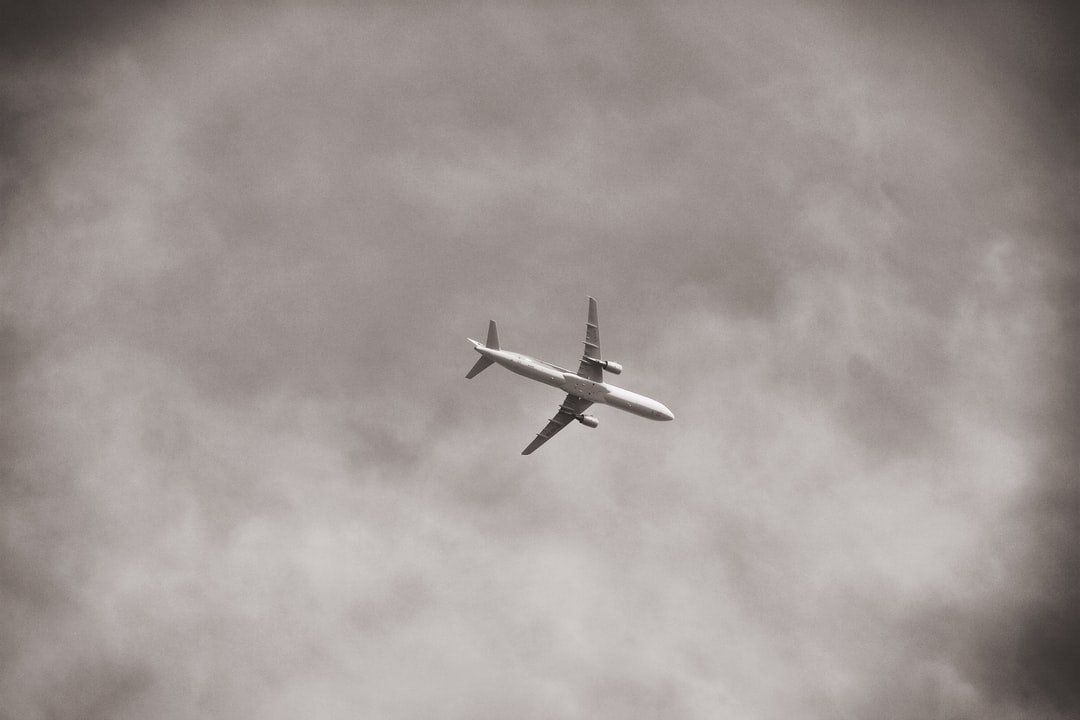
A 21-year-old immigrant has been out of his country for 6 months. He works in public transportation, struggling to eat. A few years ago he was in a classroom studying his fourth year of law. He decided to become a lawyer because he felt dissatisfied with the judicial system of his country and wanted to fight for his own rights and those of others. He was very young but he had already worked his entire life because his family had little income. His first job, which he tells about with great emotion, was selling soda that he carried in a small container to the market where he shouted " refresco refresco " (soda soda). "migrating is the sin of many" When he arrived here, he found a very different reality to the one he expected. He figured that in a neighbouring country he would find a similar culture. But on the contrary, he had to fight against stereotypes and xenophobia. And the economic situation is not easier than the social one because he is not allowed to work formally and informal work generates little income. He tells me that he never imagined having to go through this situation. But it does not prevent him from going out every day to support himself and to be able to send some money home to his family. His family is his engine, enabling him to endure everything with a smile on his face. "a dreamer who fights to recover his country" "Look friend, we have the same flag, come from the same liberator and opportunities should be given to anyone." He dreams of returning to his country. And he wishes that he can one day breathe air of freedom, and children can play with their parents in a safe and fair country. More than an immigrant he is a son of his homeland, a dreamer who fights to recover his country. On the other side of the world the same story is told: a 27 year old immigrant fights to belong in a country that claims to welcome him after years of living in war zones, of suffering attacks that left his body scarred for life, of walking, swimming and running to get there and enduring in the most deplorable conditions to receive a document that allows him to belong in a new country. "one is always different from the one who was born here" After all this he could only imagine that upon arriving to this country that legally would be his asylum, his new home, he would be able to rebuild his life and recreate his dreams. But the situation is different: the society that receives him has already labeled his kind as unpleasant and dangerous. But wasn't he supposed to be part of the whole now, wasn't he supposed to belong just like anyone else born here? No matter how someone has migrated or what his reasons were, one is always different from the one who was born here. Xenophobia, hatred, stereotypes and fear of the unknown have become one of the greatest social crises of our times. Armed conflicts, economic hardship and development have for centuries led to mass displacement. But only in recent years this event has become a major social problem. Previously migration was thought to bring development: the Vikings were called explorers and their travels were celebrated. Now migrants are segregated, discriminated and attacked for the simple fact of seeking better conditions. "No one leaves their country unless they cannot eat to live" These judgements make no sense. If we trace our own path to our deepest roots, we see that we are all the result of a mass movement that has combined cultures and created new societies. That is why today the call is to understand that behind every movement there are very deep causes. No one leaves their country unless they cannot eat to live. No one leaves their family unless it’s not safe enough for them to survive. Migration is a decision of many reasons. That is why we need to understand that the homeland, the territory and the nation are social constructions. Nature migrates, combines and grows, and that is exactly what we must do. Let us welcome everyone, let us fight for inclusive policies, let us make it easier to be away from home, let us be good to those who had to leave everything.




